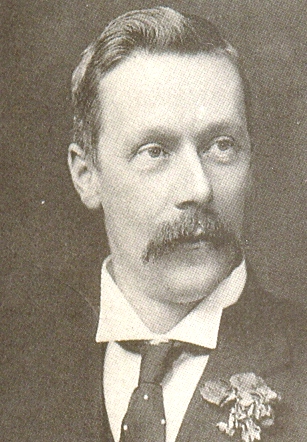- Alexander Peacock
Infobox_Premier
honorific-prefix=The Honourable
name =Sir Alexander Peacock
honorific-suffix=
KCMG
nationality =Australian
order =20thPremier of Victoria
term_start =12 February 1901
term_end =10 June 1902
term_start2 =18 June 1914
term_end2 =29 November 1917
term_start3 =28 April 1924
term_end3 =18 July 1924
predecessor1 =George Turner
predecessor2 =William Watt
predecessor3 =Harry Lawson
successor1 =William Irvine
successor2 =John Bowser
successor3 =George Prendergast
deputy =

caption =
birth_date =18 June 1861
birth_place =Creswick, Victoria,Australia
death_date =death date and age|1933|10|17|1861|6|18|df=y
death_place =Creswick, Victoria,Australia
constituency =
party =
spouse =Millie Gertrude Holden
profession =
religion =Anglican
footnotes =Sir Alexander James Peacock, KCMG (11 June 1861 – 7 October 1933),
Australia n politician, was the 20thPremier of Victoria .Peacock was born of Scottish descent at Creswick, the first Victorian Premier born after the gold rush of the 1850s and the attainment of self-government in Victoria. He was distantly related to the family of the politician
Andrew Peacock . Educated at a local school, Peacock passed the Victorian civil service examination at 13 years of age, becoming briefly a school teacher and a clerk inMelbourne . Returning to Creswick, he worked as a mine manager, establishing his own business and buying several gold mines. He was prominent in theAustralian Natives Association and the movement forAustralian federation in the 1880s and '90s.In 1889 Peacock was elected to the
Victorian Legislative Assembly for the seat of Clunes and Allendale, near Ballarat, which he held for 43 years. Although he was a moderate liberal, he was a minister without portfolio in the conservative government of James Munro (1890–1892), and Minister for Public Instruction in the Shiels government (1892–1893). He was Chief Secretary in both the governments of Sir George Turner from 1894 to 1899 and 1900 to 1901, being also Minister for Public Instruction in the first and Minister for Labour in the second.In 1897 Peacock was elected as one of the Victorian delegates to the Constitutional Convention which wrote the
Australian Constitution . In 1901, however, he chose not to stand for newParliament of Australia . This was partly because the federal electorate covering the area he represented, the seat of Ballaarat, was being contested byAlfred Deakin . Instead, he stayed in Victorian politics and succeeded Turner as liberal leader and Premier.But by this time public support for the liberals was waning, and the new conservative leader, William Irvine, mounted a public campaign for "retrenchment" - reduction in the size of the Parliament and the public service, and cuts to government spending. Peacock as a good liberal resisted this campaign, but in June 1902 Irvine carried a vote of no-confidence in Peacock's government and at the subsequent election the liberals and their Labor allies were heavily defeated. He was made a Knight Commander of the
Order of St Michael and St George in 1902.Peacock stayed in opposition during Irvine's ministry, but in 1907 he returned to office as Chief Secretary and Minister for Labour in the government of
Thomas Bent . By this time the distinction between liberals and conservatives was fading in the face of the rising challenge of the Labor Party, and from about this time the non-Labor members became officially the Liberal Party. Peacock was Minister for Public Instruction in the government ofWilliam Watt in 1913, and in June 1914 he once again became Premier, and also Treasurer, at the head of a Liberal government.Soon afterwards,
World War I broke out, and Peacock's government joined the initial enthusiastic response to the war. By 1916, however, the war was placing increasing strain on the Victorian economy, as labour shortages hit its important rural industries. This caused increased opposition to the Liberals in rural areas, led by the Victorian Farmers Union (which later became the Country Party). In 1917 the Liberals were renamed the Nationalist Party. At the November 1917 elections, the Nationalists were split into pro and anti-Peacock factions, and the anti-Peacock group swept the country seats. The anti-Peacock leaderJohn Bowser then became Premier.Peacock was a very durable politician, however, and by 1920 he was back in office, as Minister for Public Instruction and Minister for Labour in
Harry Lawson 's Nationalist government, positions he held until 1924. In March 1924 Lawson resigned and Peacock was again chosen as leader of the Nationalist Party and became Premier for the third time. He was still a liberal at heart, however, and immediately brought in a bill to reduce the disproportionate representation of country areas, a long-standing grievance. But his own followers rebelled and Peacock called an election, at which Labor emerged as the largest party, though well short of a majority. Peacock resigned again, and was succeeded by a minority Labor government led byGeorge Prendergast .After a few months on the backbench Peacock returned as Minister for Public Instruction and Minister for Labour in John Allan's Country Party government, holding these positions until 1927, when he left ministerial office for the last time, 37 years after holding his first portfolio. In 1928 he was elected Speaker, a position he held until his death in 1933. His widow Millie, Lady Peaock, won the by-election at Allandale caused by his death, becoming the first woman member of the Legislative Assembly.
References
*Geoff Browne, "A Biographical Register of the Victorian Parliament, 1900-84", Government Printer, Melbourne, 1985
*Don Garden, "Victoria: A History", Thomas Nelson, Melbourne, 1984
*Kathleen Thompson and Geoffrey Serle, "A Biographical Register of the Victorian Parliament, 1856-1900", Australian National University Press, Canberra, 1972
* Raymond Wright, "A People's Counsel. A History of the Parliament of Victoria, 1856-1990", Oxford University Press, Melbourne, 1992
*
Wikimedia Foundation. 2010.
